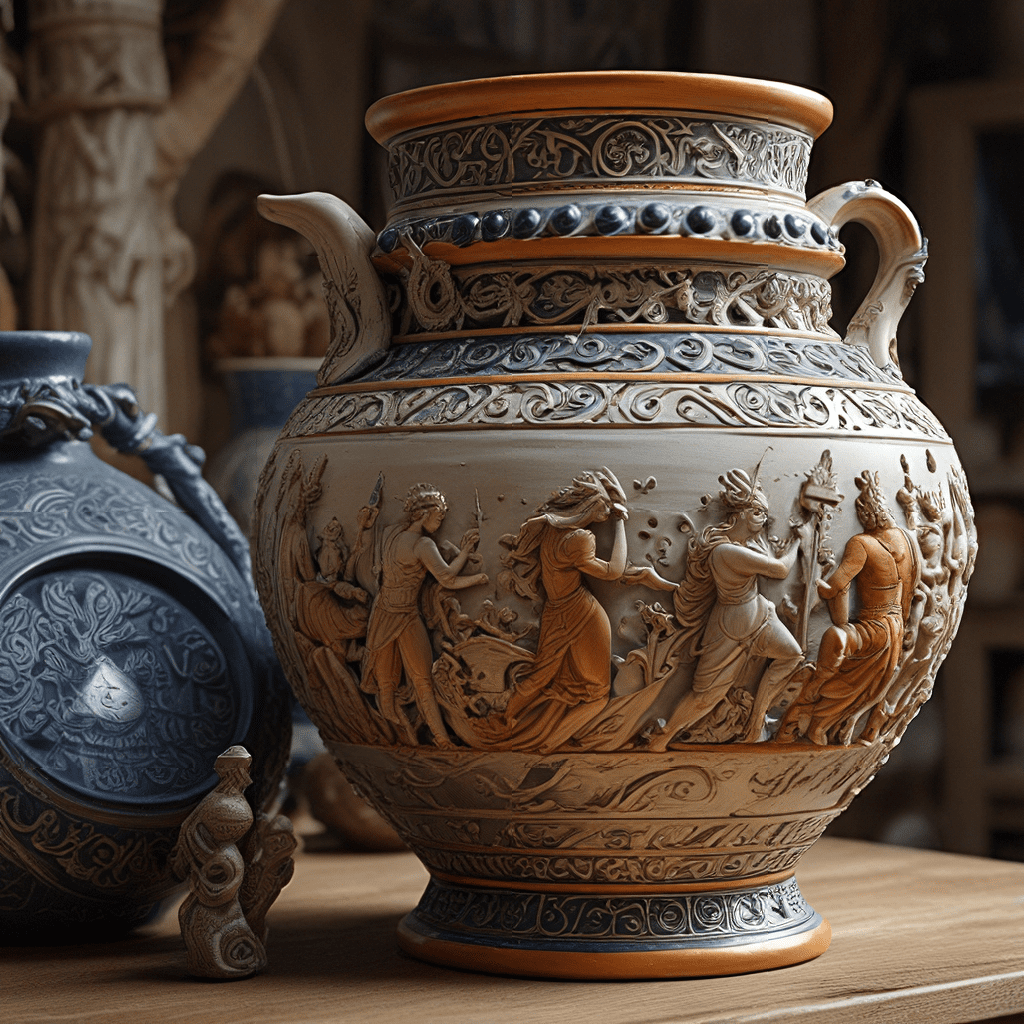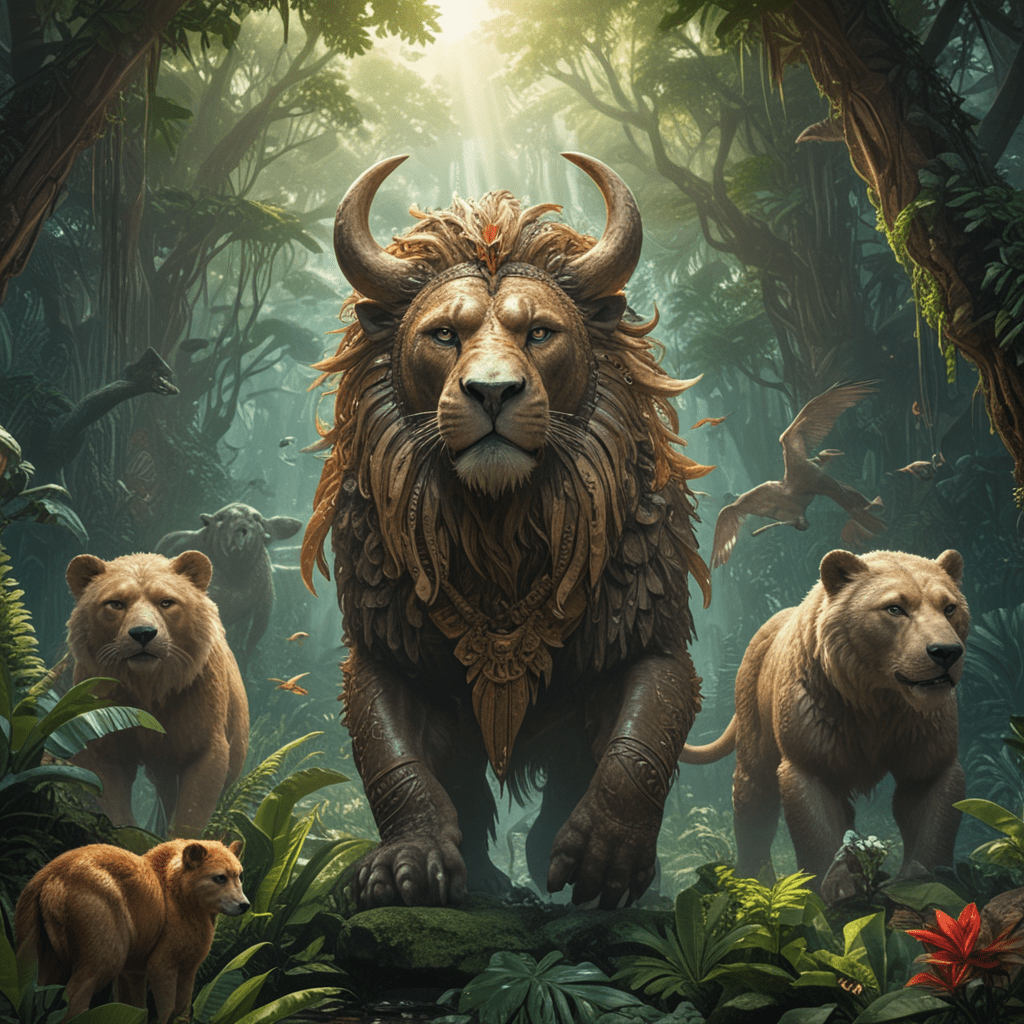Fabled Legends: The Greatest Battles in Mythology
I. Introduction
Mythology is a rich tapestry of stories woven into the cultural fabric of societies across the globe. It serves not only to explain the unexplainable but also to convey values, morals, and the human experience. Central to many mythological narratives are battles — epic confrontations that symbolize the struggle between good and evil, order and chaos, and the quest for identity and glory.
This article explores some of the most iconic battles in various mythologies, delving into their significance, the heroes involved, and the underlying themes that resonate through time. From the ancient Sumerian epic of Gilgamesh to the cosmic struggles of Norse legends, these battles reveal the complexities of human nature and the divine.
II. The Epic of Gilgamesh: The Battle Against Humbaba
Set in ancient Sumer, the Epic of Gilgamesh introduces us to its titular hero, Gilgamesh, the king of Uruk. The narrative unfolds in a world governed by gods and legendary creatures, one of which is Humbaba, the fearsome guardian of the Cedar Forest.
Alongside his companion Enkidu, Gilgamesh confronts Humbaba in a battle that tests their strength and resolve. This encounter is not merely a physical confrontation; it embodies themes of friendship, courage, and the quest for everlasting glory. The duo’s victory over Humbaba symbolizes the triumph of humanity over the monstrous and the unknown.
III. The Trojan War: Heroes and Gods Clash
The Trojan War, one of the most famous conflicts in Greek mythology, is a tale filled with heroism, betrayal, and divine intervention. Sparked by the abduction of Helen, the war sees iconic figures such as Achilles, Hector, and Odysseus engage in numerous battles that shape the fate of Troy.
Key battles include:
- The duel between Achilles and Hector, which highlights themes of honor and vengeance.
- The ambush of the Greek camp, showcasing cunning strategies by both sides.
- The infamous use of the Trojan Horse, a testament to ingenuity over brute force.
Throughout the war, gods and goddesses such as Athena, Apollo, and Zeus play pivotal roles, often tipping the scales in favor of their chosen heroes. This interplay of divine influence illustrates the belief that human actions are intertwined with the whims of the gods.
IV. The Mahabharata: The Great War of Kurukshetra
The Mahabharata stands as one of the longest epic poems in the world, narrating the saga of the Kauravas and Pandavas, two factions of the same royal family. The Great War of Kurukshetra is the epic’s climactic event, encompassing a myriad of battles that are both physical and philosophical.
Main characters include:
- Arjuna: A master archer and one of the Pandava brothers.
- Karna: A formidable warrior and ally of the Kauravas.
- Krishna: The divine charioteer offering guidance to Arjuna.
The battle strategies employed, coupled with divine interventions, highlight the complexities of dharma (duty) and the moral dilemmas faced by warriors. The Bhagavad Gita, a part of the Mahabharata, delves into the philosophical implications of the conflict, addressing the concepts of righteousness, justice, and the nature of life and death.
V. Ragnarok: The Norse End Times Battle
Ragnarok, often referred to as the “Twilight of the Gods,” is a cataclysmic event in Norse mythology that signals the end of the world and the ultimate battle between the gods and their foes, the giants. This battle is not just an ending but also a precursor to rebirth.
Key figures in this final confrontation include:
- Odin: The Allfather and leader of the Aesir gods.
- Thor: The god of thunder, wielding his mighty hammer, Mjölnir.
- Loki: The trickster god and antagonist in the saga.
The symbolism of destruction and rebirth serves as a reminder of the cyclical nature of life and the enduring struggle between chaos and order in the universe.
VI. The Battle of the Titans: Clash of Giants in Greek Mythology
The Titanomachy is a legendary battle that pitted the Olympian gods against the Titans, their predecessors. This conflict is foundational in Greek mythology and marks the transition of power from the old gods to the new.
Major figures involved include:
- Zeus: The leader of the Olympians, representing order and justice.
- Cronus: The leader of the Titans, embodying the chaotic forces of nature.
The consequences of this monumental battle reshaped the divine hierarchy and established the Olympians as the ruling deities of the Greek pantheon, influencing countless myths and cultural narratives that followed.
VII. The Battle of Heaven and Earth: The Fight Between the Devas and Asuras
In Hindu cosmology, the struggle between the Devas (gods) and Asuras (demons) represents the eternal conflict between good and evil. These battles are not merely physical; they also embody moral and ethical dilemmas faced by humanity.
Major conflicts include:
- The churning of the ocean (Samudra Manthan), where both Devas and Asuras work together to obtain the nectar of immortality.
- The various wars led by Indra, the king of the Devas, against powerful Asuras like Vritra.
These stories impart lessons on the importance of dharma, the balance of good and evil, and the cyclical nature of existence.
VIII. The Legend of Beowulf: Heroism and Monsters
The Anglo-Saxon epic of Beowulf tells the story of its eponymous hero and his battles against formidable creatures. Set in a world where monsters and men coexist, Beowulf’s journey is one of courage, loyalty, and the quest for glory.
Beowulf’s notable battles include:
- His fight against Grendel, a terrifying monster attacking the hall of King Hrothgar.
- The battle with Grendel’s mother, showcasing Beowulf’s bravery and determination.
- His final confrontation with a dragon, symbolizing the inevitability of mortality.
The epic explores themes of heroism, sacrifice, and the transient nature of life, leaving a lasting legacy in literary tradition.
IX. The Siege of Vicksburg: Echoes of Myth in American Folklore
The Siege of Vicksburg during the American Civil War is often viewed through a mythological lens, reflecting the struggles between good and evil, freedom and oppression. This modern battle has been mythologized in various narratives, illustrating the influence of historical events on folklore.
Aspects of the Siege that resonate with mythological battles include:
- The determination of Union forces mirroring the heroics found in epic tales.
- The tragedy and valor of those involved, akin to the legendary figures of ancient myths.
This blending of history and mythology highlights how battles echo through time, shaping national identity and collective memory.



